Contemporary artist Giulio Zanet embraces uncertainty and lets the very act of painting guide him.
My inspiration is life. I live so I paint. I keep asking myself if what I do makes sense and, maybe, the fact that it doesn’t is the reason I keep doing it. The process for me is fundamental precisely because I never start from a particular idea or intention when I paint. It’s important how it builds up while I do it.
Contemporary artist Giulio Zanet
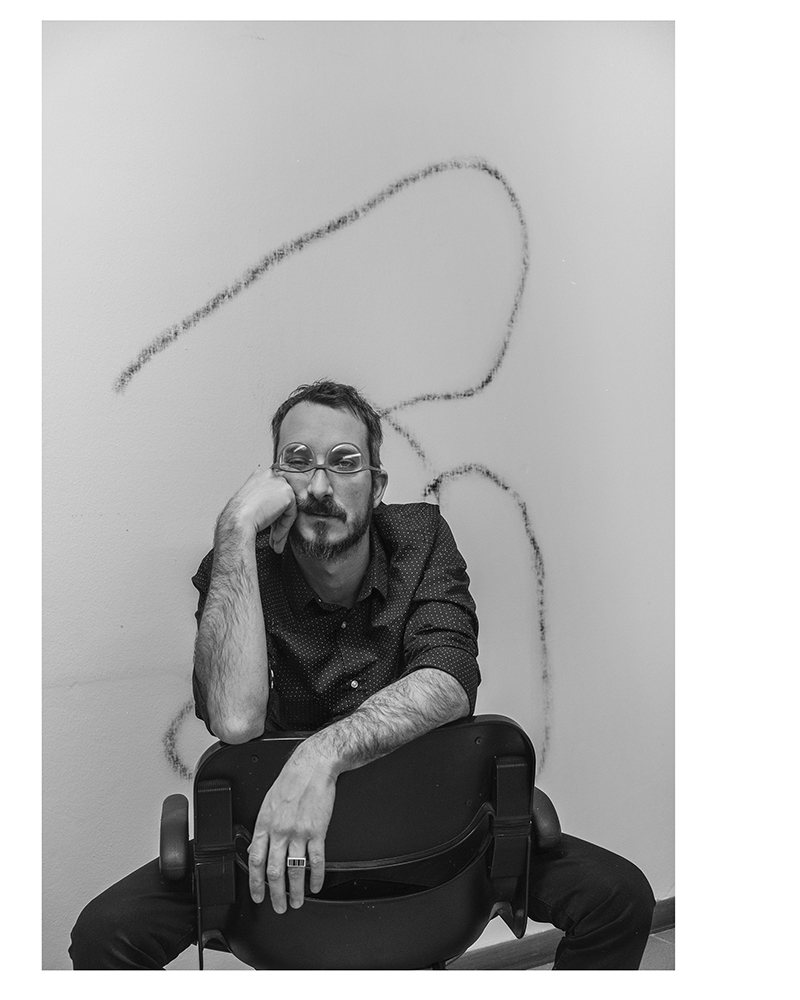
Photo by Manuel Coen.
Take us to the beginning of your story. How did your tryst with art begin?
I come from a small provincial town, at the foot of the mountains, in Piedmont. At home I have probably always breathed a sort of artistic air. When I was little my mom played the piano and my dad painted. Then, over the years they both stopped, perhaps absorbed by us children or by the necessities of life.
As a teenager, the first expressive form I approached was music. I tried to learn to play the guitar. I had been playing with friends and, after a while, I realised that it wasn’t for me. Later I tried writing. I tried to write stories with the ambition of becoming a writer, but even there after a short time I realised that it was not my cup of tea.
Then came painting, and a love was born. And I haven’t stopped since. I had fun and it was good enough for me, so I kept doing it. After high school I decided to enter the Academy of Fine Arts and moved to Milan, and got on the veritable carousel.
I started to do exhibitions, residences, made a network of friends related to the world of art. Gradually, I became more and more aware that this was and still is what I wanted to do and, therefore, despite the many difficulties I keep doing it.
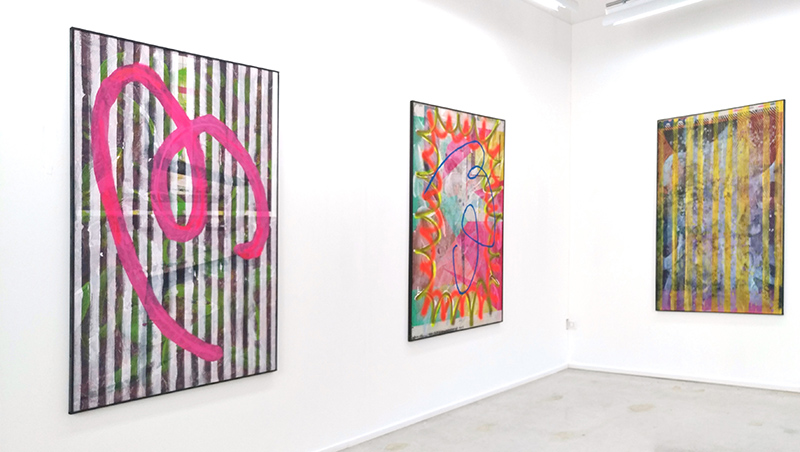
PITTURA1 – Lissone. Raffaele Cioffi Studio. 2018.
How do you deal with the conceptual difficulty and uncertainty of creating work?
I made the uncertainty part my poetry. When I work, I pay little attention to conceptuality. I let painting guide me. When I start a new work I don’t think about what I intend to do. I start and the work gradually takes shape. At the beginning, I generally make a big mess on the surface and later the effort is to make order and make sense of the initial chaos.
Let’s talk about the evolution of your practice over the years. Tell us about your commitment to your current medium.
I started, like many others, from figuration, studying the classics and anatomy. Immediately after the academy I did figurative painting. Over the years, the figure has disappeared and I have been working on landscape and architecture. I was interested in a space with multiple perspectives where the planes intersected, creating a visual and narrative short circuit. Then the space became flat and the painting became the protagonist in every respect. I don’t care about representing anything anymore. I believe I have made a journey towards the essential in my own way. Now, my work deals exclusively with shape, colour, and surface.
Even the materials I use have changed. At first I used canvas and oil colours and now I use canvas, paper, PVC, fabrics painted with enamels, acrylics and sprays.
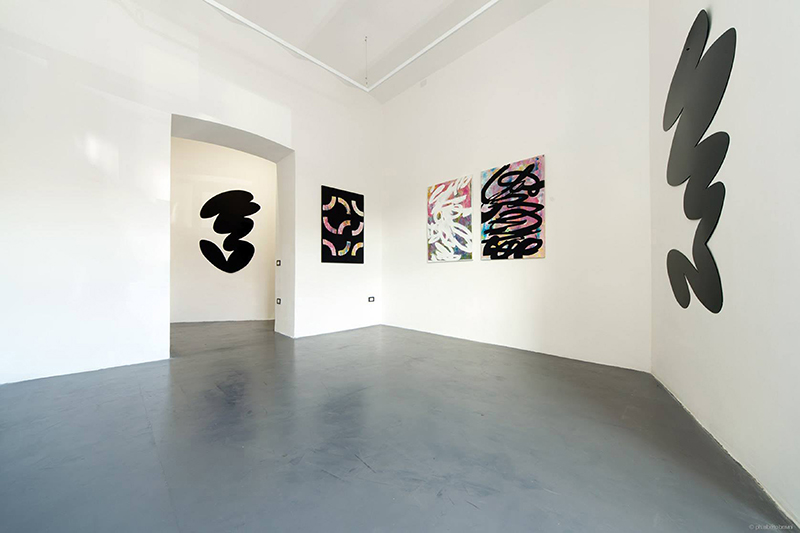
Installation view. ABNEGAZIONE. Crac Gallery -Terni. 2017. Photo by Alberto Bravini.
What is your experience of the power of formative collaborations? Which residency, curator or gallery helped you along on your artistic journey?
Every experience, both negative and positive, has been fruitful. Every time you have the opportunity to collaborate and discuss it is an opportunity for growth.
Let’s talk about your frameworks, references and process. What inspires you?
Everything I do – live, look, read and so on. My inspiration is life. I live so I paint. I keep asking myself if what I do makes sense and, maybe, the fact that it doesn’t is the reason I keep doing it. The process for me is fundamental precisely because I never start from a particular idea or intention when I paint. It’s important how it builds up while I do it.
How do you balance art and life?
For me it is perfectly balanced because my work today allows me to manage my time in a rather simple and happy way. I live in a provincial town with my partner and our dog, where I have my studio and work. And I move and travel when the profession requires it.
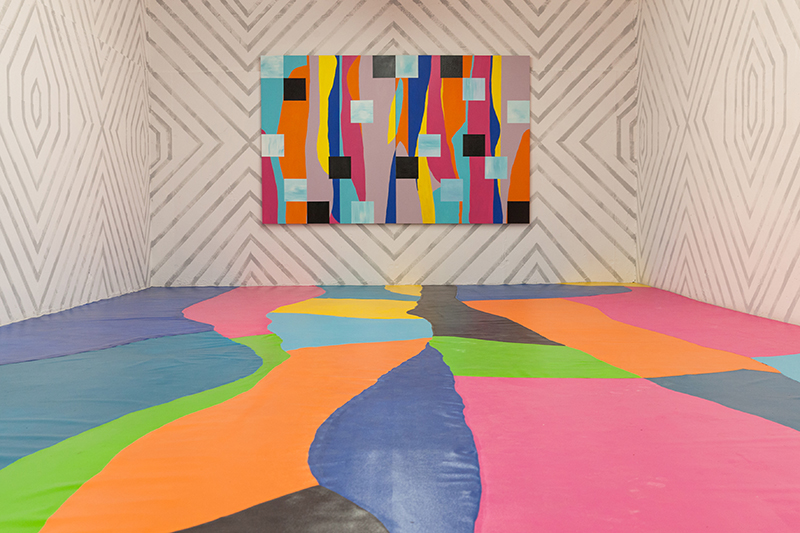
Installation view. ANOTHER PAINTINGS. Circolo Quadro. Milano. 2016. Photo by Pietro Baroni.
What was your first sale? Do you handle the commercials yourself or is it outsourced to a gallery or an agent?
I sold my first painting shortly after leaving the Academy. But since then I have never had continuity. In Italy, the art market isn’t experiencing a happy season and for emerging artists like me it’s not easy. We must have conviction and tenacity.
Artists often experience contradicting motivations, especially when it comes to the commercial versus the creative. How do you strike a balance?
I’m not sure I have achieved balance because I sell very little. So, for the moment I don’t have to face contradictions between my production and market demands. I carry on my research calmly and consistently, which allows me to do what I want.
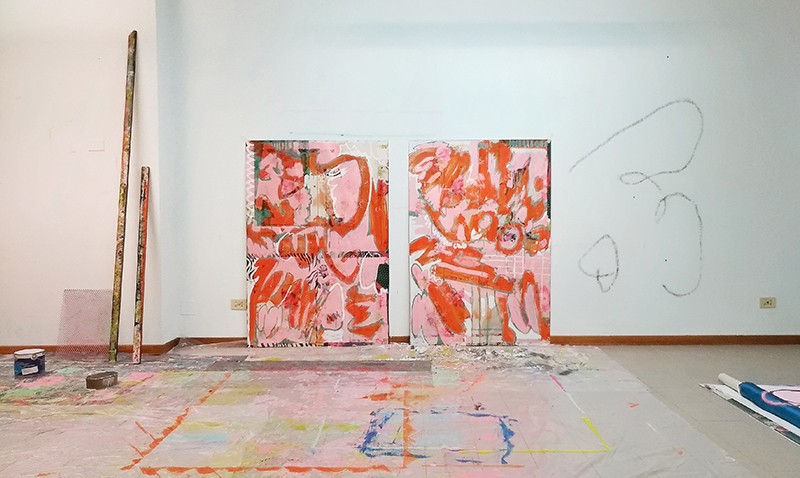
Studio View. 2019.
Are you more of a studio artist or naturally collaborative by nature? How do you feel about commissions?
I have always been an artist who loves working in the studio, immersed in his solitude. But this does not mean that I don’t love collaborating on projects. And it also depends on the type of work: as far as painting in the strict sense is concerned I love being in the studio alone. When my work is installation-like projects, I like working with others as it helps giving me a new perspective.
As for the commissions, it depends on how “restrictive” they are. If they are site-specific interventions, I’m generally very happy to take them because they allow me to compare myself with space. If they are paintings it becomes a little more complicated. The type of work I do lends little to requests.
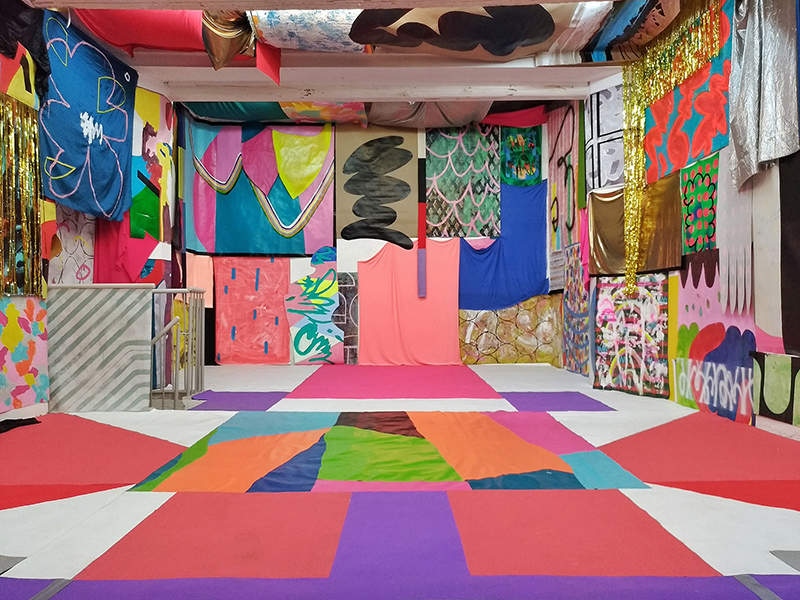
Installation view. LA VITA E’ UN PASSATEMPO. Adiacenze. Bologna. 2019.
How does your audience interact and react to your work? What is that one thing you wished people would ask you but never do?
How the public interacts with my work, is of interest to me. I love the experience of painting and, in this sense, I love installing my work so that it is not exclusively to be frontally viewed as a framework. I like to get out of the picture dimension. Instead, I let it invade or adapt to the space that hosts it, becoming three-dimensional. I hope that somehow painting takes on a role of real presence and not just of an object.
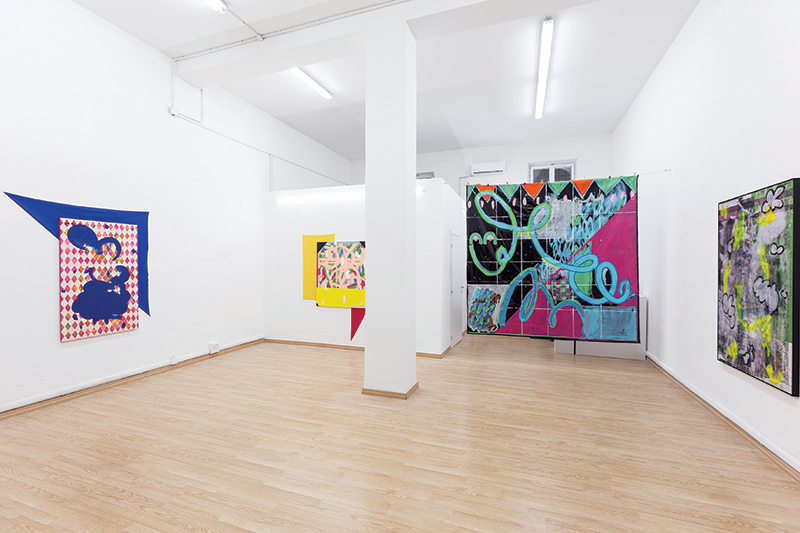
Installation view. BEHIND THE SCENES. L M Gallery. 2019. Photo by Andrea Menghini.
What are you working on now? What’s coming next season?
I’m working on two large installations for February, in Milan. One inside the San Ferdinando Re church, on the premises of the Bocconi University complex and another is at the entrance of the Affordable Art Fair, at SuperStudio. The SUPERGIOVANE project continues. I am one of the founders and, in the meantime, I am collaborating with a DJ for the cover of his next album. And I continue to paint every day.
Before you go – you might like to browse our Artist Interviews. Interviews of artists and outliers on how to be an artist. Contemporary artists on the source of their creative inspiration.

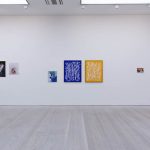
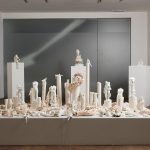
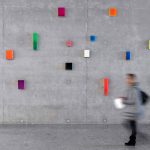
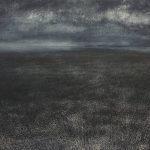
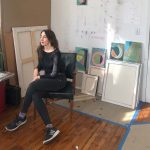
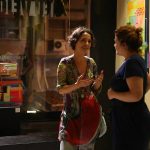

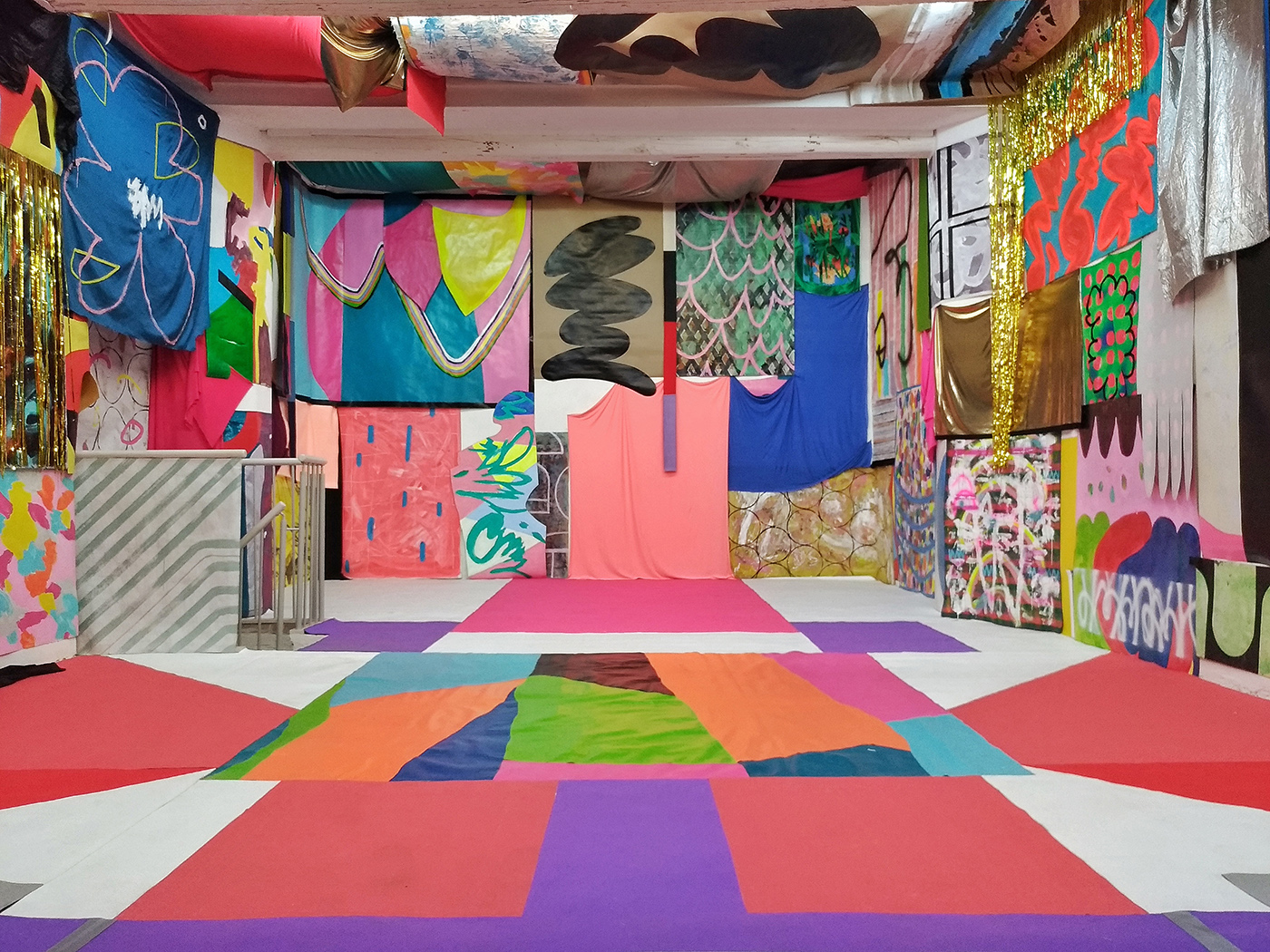
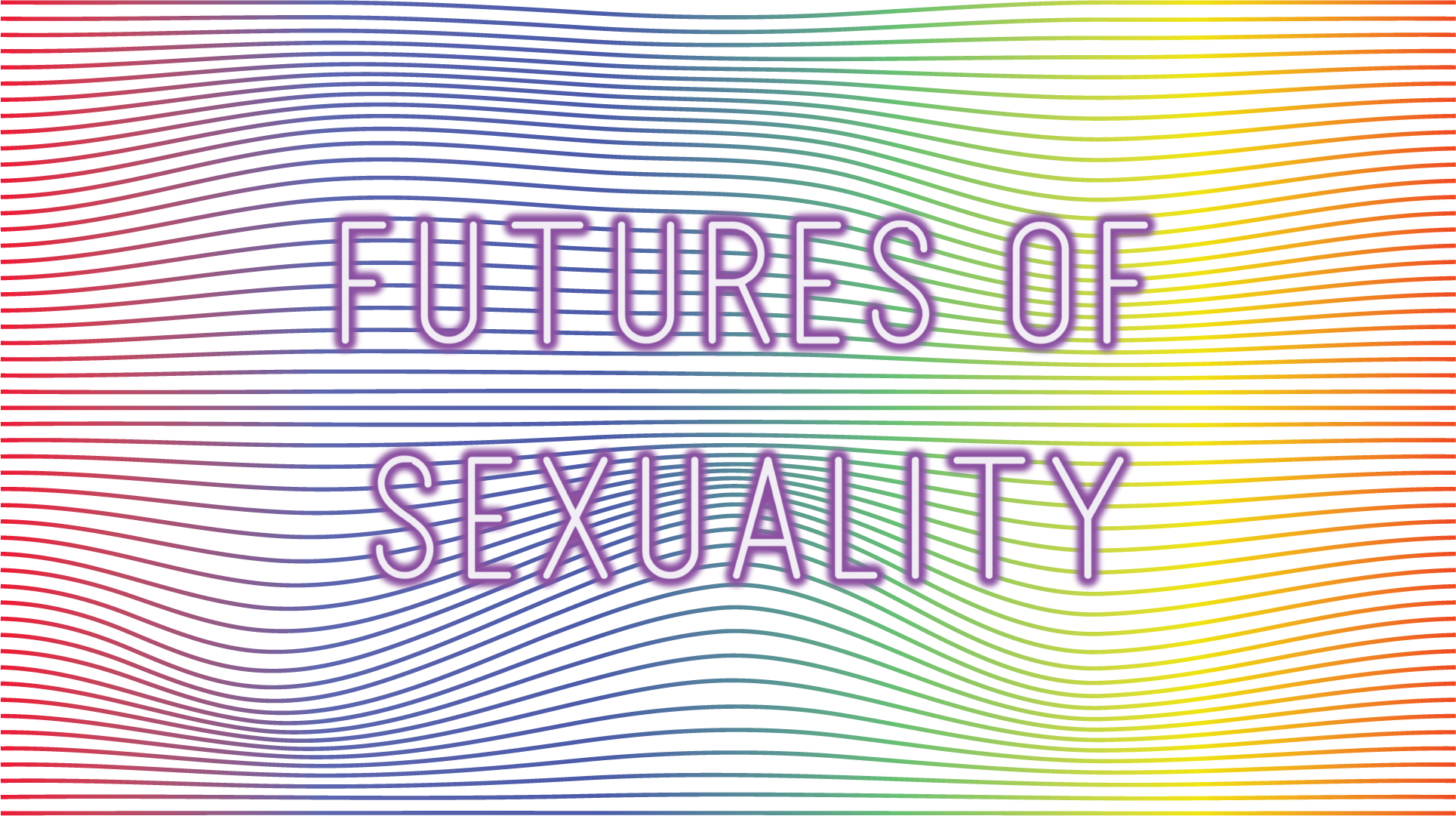
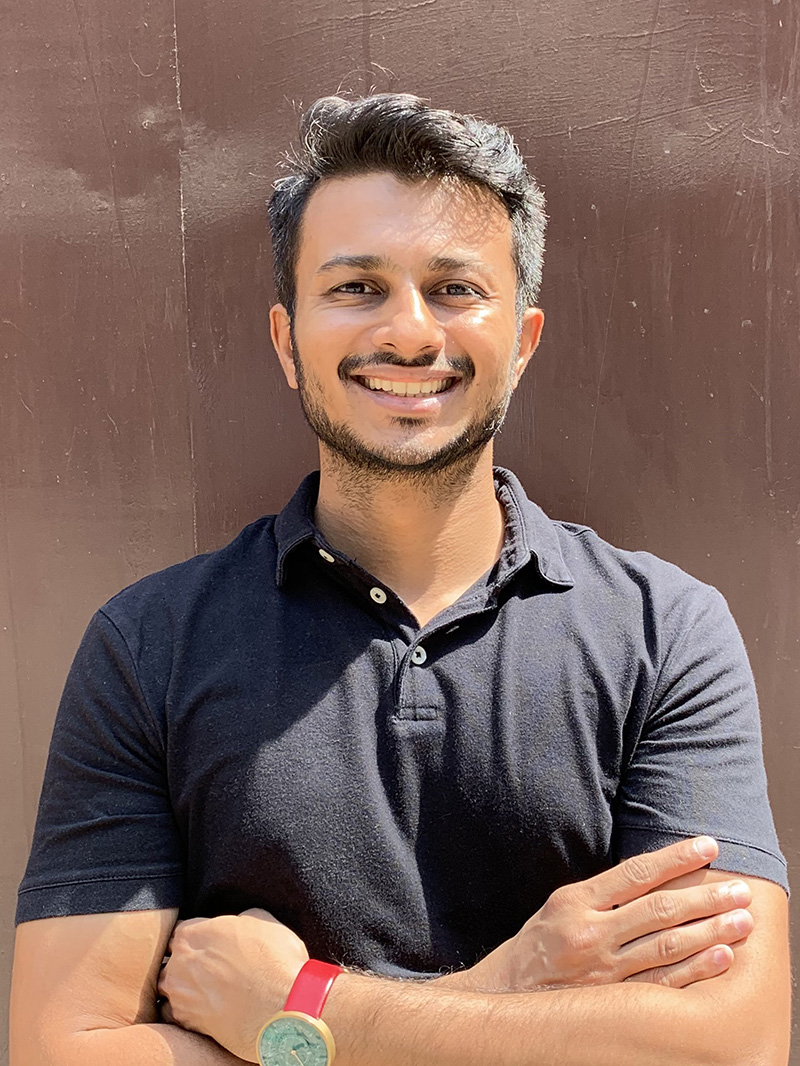

Add Comment